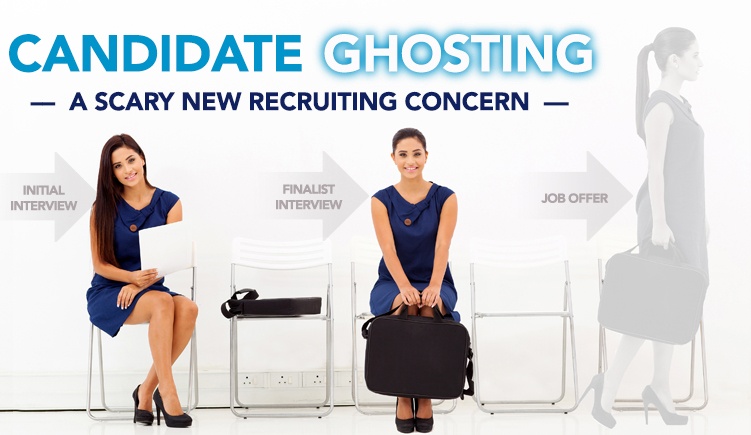
Previously, the issue was individuals not showing up for job interviews. However, now candidates are disappearing further along in the process and, under some circumstances, it's after they've accepted the job offer.
What’s Ghosting?
When we hear the term "ghosting," it typically refers to what happens in dating relationships when communication ends. Therefore, it's simple also to apply this term to professional situations. Even though no statistics are pointing to how often this is occurring, HR leaders are reporting their frustrations with how often they're encountering ghost candidates over the past couple of years.
According to a recent LinkedIn article, "Candidates agree to job interviews and fail to show up, never saying more. Some accept jobs, only to not appear for the first day of work, no reason given, of course." The underlying questions are why is this happening repeatedly and are there preventative measures we can take?
How Can RPO Help?
While these situations are frustrating, there are solutions. It isn't possible to force candidates to make the right choices. However, there are steps we can take to ensure you'll help them in doing so. Here are some ways Recruitment Process Outsourcing (RPO) can reduce ghost candidates.
1: Prevent Candidates from Having the Benefit of the Doubt
It isn't uncommon for recruiters to not have the proper preparation for "ghosting" because they don't believe it could be possible. Under most circumstances, the candidate they're dealing with has a nice personality and seems like a good fit. Their references are checking out, and they appear to fit in with the company's culture. It doesn't seem like they'll be a culprit for ghosting. However, anyone could do this. Instead of going into a situation believing this won't happen, begin the process believing it will occur.
2: Begin the Conversation with Ghosting
Along the line, bring up the topic of ghosting. Broach the subject of what it is and what the consequences of doing so will be for the candidate. That's the most critical part of the conversation. When you emphasize the consequences, including the potential hit on their reputation, the candidate will take notice. Because they'll be burning bridges with you and the employer, they'll be less likely to perform this action. Their ideal situation would be to make a firm commitment of not ghosting before any offers are made.
3: Tell Stories About How Candidates Had Bad Experiences with Ghosting
You may not have any particular stories about bad experiences with ghosting. However, if you do, talk about them with your candidate. Describe them in detail and how that past candidate burned bridges with you and the employer. These stories will motivate the candidate not to ghost the offer. It's critical that you aren't politely making suggestions but, instead, you're strongly dissuading.
4: Figure Out How Many Other Employers the Candidate is Interviewing With
This information may be difficult to pull from the candidate. However, given the current condition of the market, it's safe to say the candidate has multiple interviews lined up. In turn, this will also mean multiple offers are going to come up. However, if you receive specific information, you can be better prepared for what to anticipate.
5: Upon Extending an Offer, Set Expectations
When you extend an offer to a candidate, don't let them answer with, "a couple of days." Instead, you need to hear a specific answer like, "You will hear from me on Wednesday the 19th by 5 p.m." It's okay if the candidate needs time to think about the offer. However, it's critical that you receive specifics and not generalities. Ask them how much time they need to make their consideration. Then, ask them when you receive an answer. Next, ask them how you will receive your reply. Finally, tell them that if they don't meet their deadline for providing you with an answer that the client may pull their offer. While this may not be entirely true, it will help motivate the candidate to stick to their deadline and do the right thing.
For more than a decade, Source2 has worked with clients who want to streamline their recruiting processes so they can focus their efforts on other HR strategic initiatives.
David Nuxol is the President and CEO of Source2. David has nearly 30 years' experience as an executive in the outsourcing and recruitment industry. Schedule a free consultation with him today.Tags:

Sep 24, 2018 9:05:00 AM
